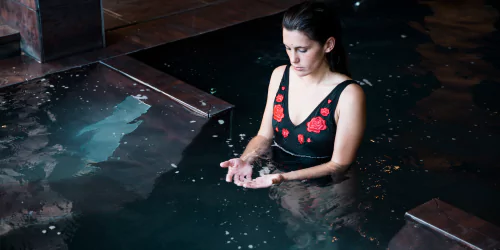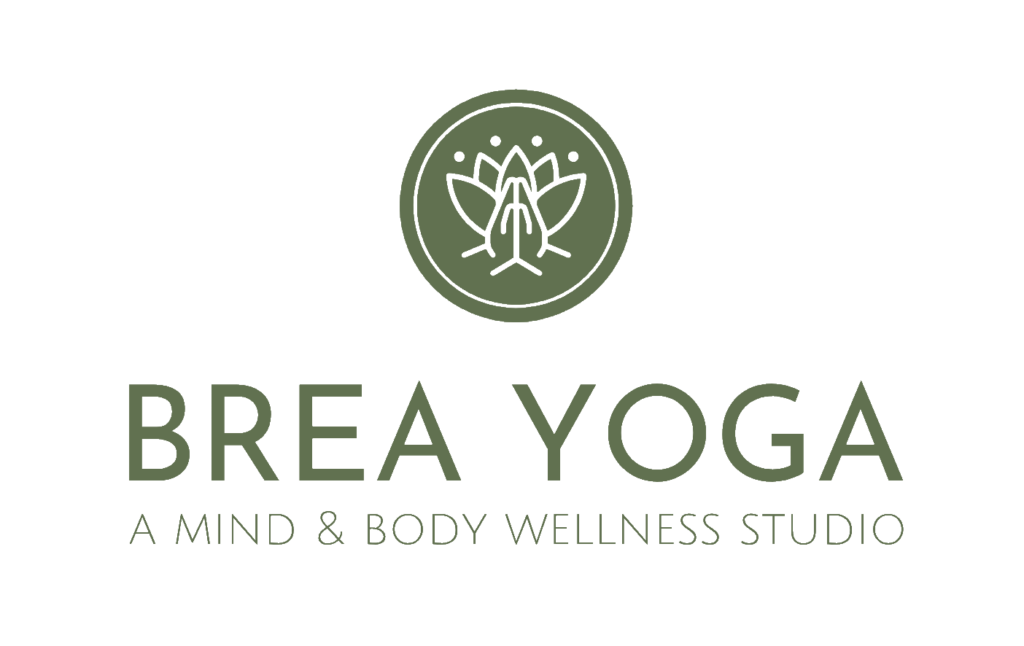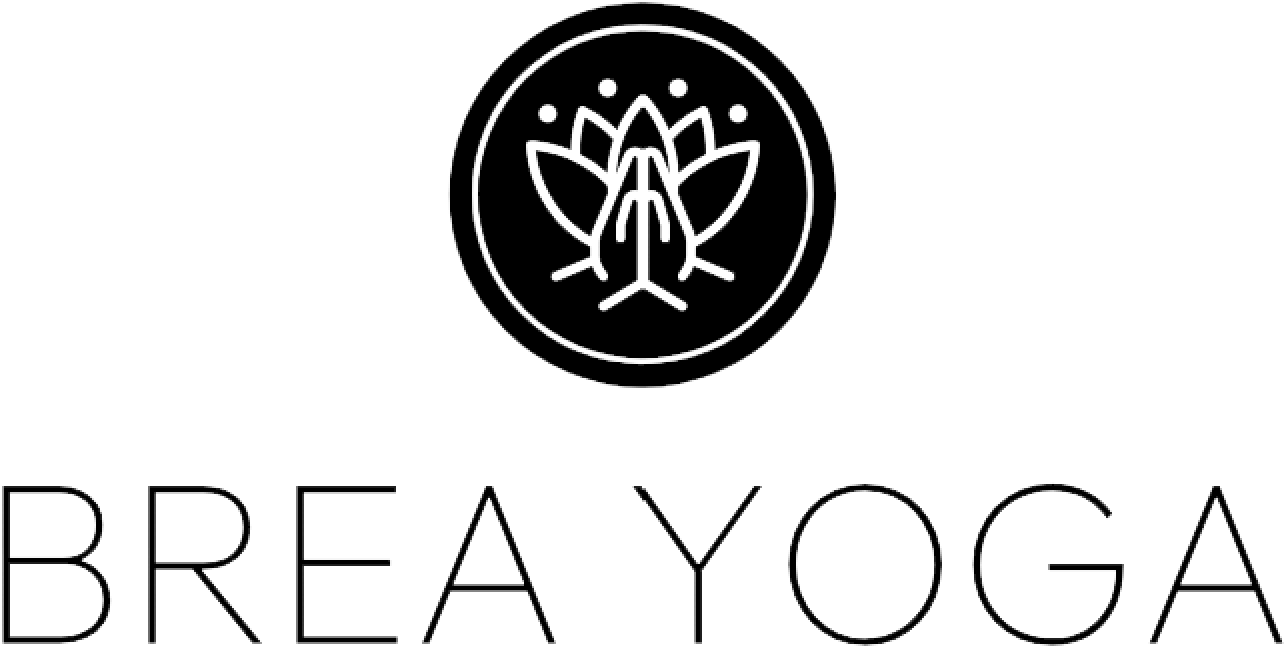Cyrospring Cold Plunge
Cold Plunge Therapy in private room
$25 for 3x 5 minute sessions at 50-59° F (recommended for first-timers)
$15 for 1x 10 minute session at 48-53°F (recommended for seasoned plungers)
$45 for 3x 10 minute sessions at 48-53°F
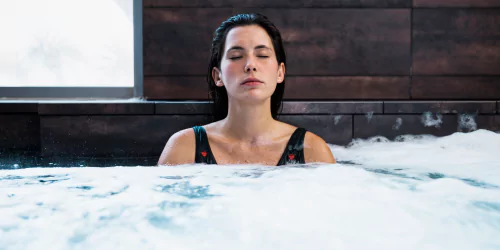
Pricing
- 3x 5 minute sessions at 50-59° F (recommended for first-timers) : $25
- 1x 10 minute session at 48-53°F (recommended for seasoned plungers) : $15
- 3x 10 minute sessions at 48-53°F : $40
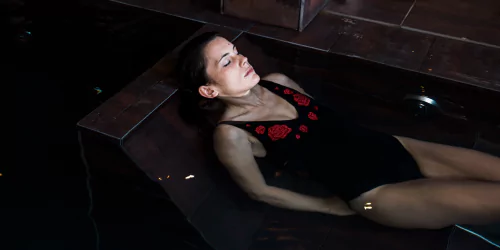
What is it?
Cold plunge therapy (CPT), also known as cold water immersion, is a practice with historical roots in various cultures. It involves a brief, controlled submersion of the body in significantly chilled water, typically below 53 degrees Fahrenheit. While seemingly drastic, cold plunge therapy has garnered increasing interest in the scientific community due to its potential health benefits.
When undergoing cold plunge therapy, the body undergoes a series of reactions. The initial shock of the frigid water triggers the cold shock response, causing a rapid increase in heart rate and breathing as the body works to maintain its core temperature. To minimize heat loss, blood vessels throughout the body, particularly those near the skin, constrict. This constriction can lead to temporary numbness and tingling in the limbs. Cold exposure also stimulates the release of hormones like norepinephrine and epinephrine, which can heighten alertness and focus. Additionally, the body releases endorphins, its natural painkillers, to help manage the discomfort of the cold.
Physical Benefits:
- Enhanced Recovery: Athletes rave about cold plunges for their muscle-healing magic. The cold water constricts blood vessels, reducing inflammation and swelling that can occur after a tough workout. This translates to faster recovery times and less post-exercise soreness.
- Pain Relief: The numbing effect of cold water provides temporary pain relief. Similar to applying an ice pack, cold plunges can be helpful for managing chronic pain conditions like arthritis.
- Improved Circulation: Cold plunges can give your circulation a boost. The initial shock triggers the sympathetic nervous system, which in turn stimulates blood flow throughout your body. This can improve delivery of oxygen and nutrients to your tissues.
- Potential Anti-inflammatory Effects: The cold temperature itself might have anti-inflammatory properties. By constricting blood vessels, it could potentially lower levels of inflammatory markers in the body. This can be beneficial for those with chronic inflammatory conditions.
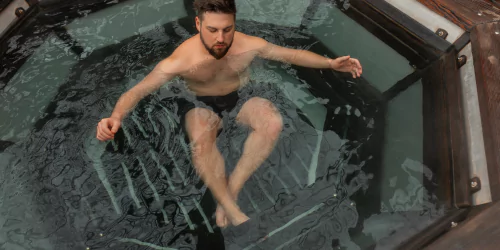
Mental Benefits:
- Improved Mood and Focus: The shock of cold water immersion activates the sympathetic nervous system, potentially triggering the release of mood-boosting endorphins and neurotransmitters like norepinephrine. This can lead to increased alertness, focus, and feelings of well-being. Some users report feeling more energized and invigorated after a cold plunge.
- Stress Reduction: Cold exposure might also help manage stress. The physical challenge of a cold plunge can be a distraction from daily worries, and the release of endorphins can contribute to a more positive outlook.
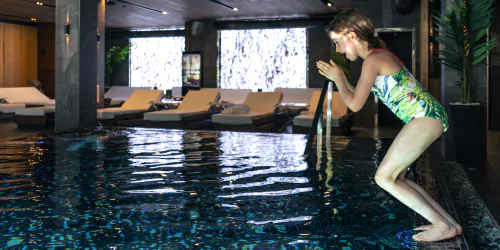
Other Potential Benefits:
- Boosted Immunity: Some research suggests that cold exposure might activate the immune system, although more studies are needed to confirm this effect.
- Weight Management: There’s some preliminary indication that cold exposure might increase brown fat activity. Brown fat, unlike white fat, burns calories to generate heat, and its activation could potentially contribute to weight management efforts.
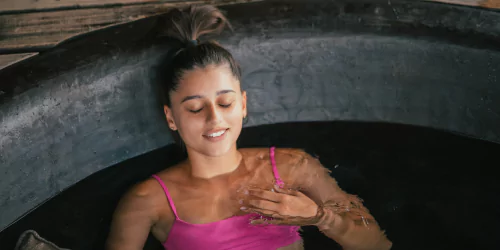
How often to plunge?
The ideal frequency of CPT depends on an individual’s goals and tolerance. For most people, a starting point of 2-3 plunges per week allows the body sufficient time to recover between dips, especially if they are active. Athletes seeking faster muscle recovery might consider daily plunges, but consulting a doctor beforehand is crucial to avoid hindering long-term performance. Beginners should start slow with just 1-2 plunges weekly, gradually increasing as their tolerance builds.
Please note:
CPT is not a cure-all and will not work for everyone. Some conditions may not respond to treatment, and results can vary from person to person. As research on CPT is ongoing, consulting a healthcare professional before starting is always recommended, particularly for those with pre-existing health conditions.
